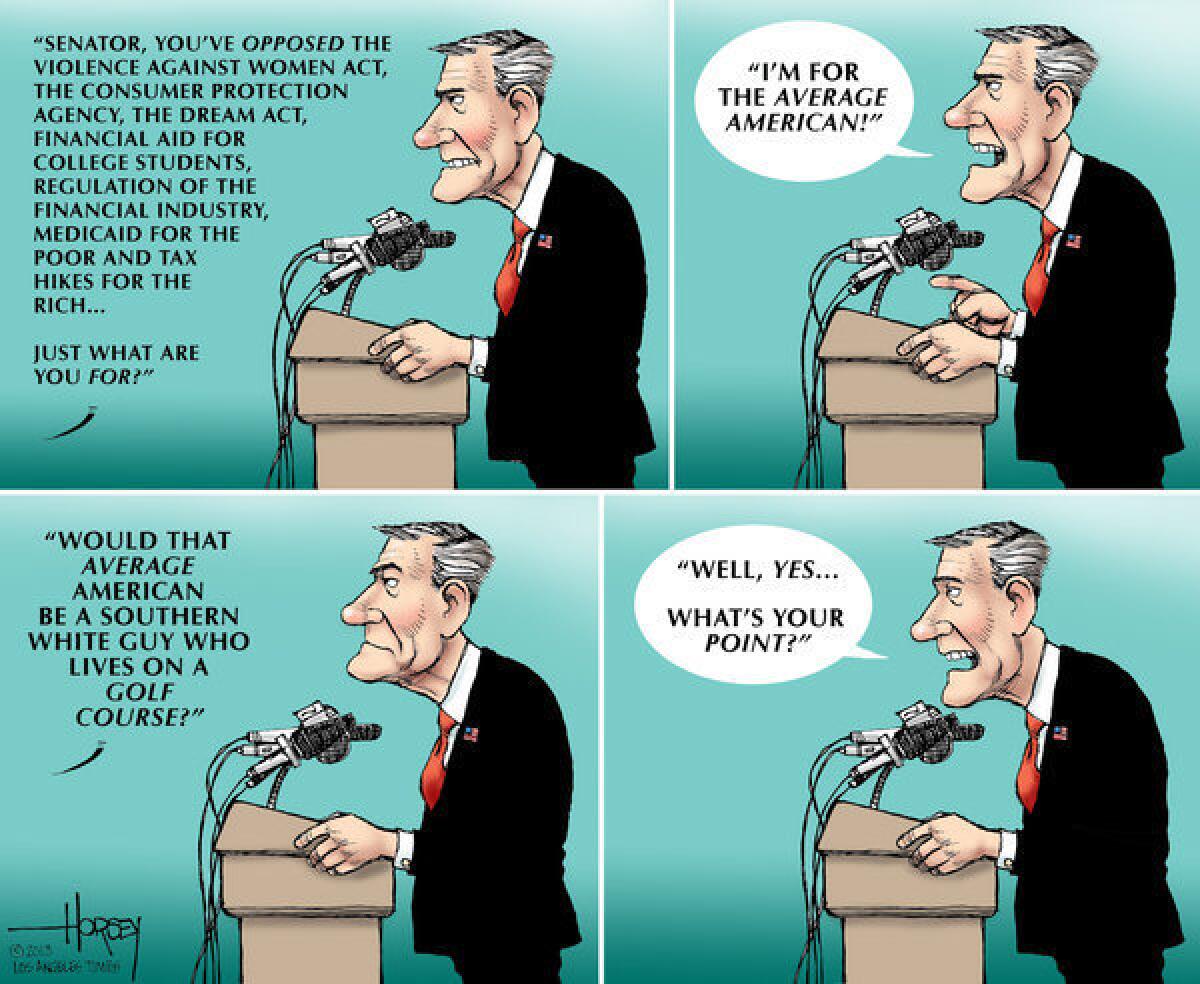Republican fallacy: Average Joe is best served by Big Business

Republicans make the claim that their party represents the concerns of average, hard-working, family-centered Americans. It is a curious claim, given that their party unfailingly opposes any measure that gives those average Americans a break.
Average Americans struggle to pay for their kids’ college tuitions. Their incomes have stagnated. They have lost jobs. They have been screwed over by mortgage companies and banks. They have seen their 401(k) retirement savings decimated and pensions disappear.
Yet, the Republicans who claim to be their champions consistently side with the big banks and financial industry players who gambled with home mortgages, ransacked pension systems and nearly brought the economy to collapse. They side with unscrupulous business interests instead of powerless consumers. They limit financial aid to students and cut funding for higher education. They target unions that once were able to win decent incomes for workers, instead favoring corporations that cut wages, lay off employees and demand more work from those remaining on the job. They oppose extensions of unemployment compensation and fight against increases in the minimum wage.
In all situations, Republicans act as if their only motivation is to protect the interests of business owners, big corporations and Wall Street. So, how can they contend it is the average American they care about most? Are they being utterly cynical or could it be they have their own peculiar definition of reality?
In most cases, I assume the latter. Republican reality is based on the premise that if the “job creators” get tax breaks and freedom from regulation, all the agonies of average Americans will be remedied -- more business will mean more jobs, better wages, bigger savings, more secure retirements and more opportunities for the next generation. It is an optimistic vision of free-market magic with such wide appeal that quite a few average Americans -- even among the jobless -- buy into it. Unfortunately, it is a vision based on two fallacies.
The first is that small government, low taxes and no regulation lead only to good results. This idea is the central core of today’s Republicanism and explains conservatives’ current nostalgia for Calvin Coolidge. Silent Cal, who believed government should do as little as possible, is their perfect ideal of a president.
The flaw in this Coolidge adulation is the flaw in the central Republican premise: Left alone with no government oversight during the Coolidge years, Wall Street went wild and brought about the crash of 1929 and the Great Depression. Similarly freed from regulation in the late 1990s and the early years of this century, bankers and brokers nearly did it again in the economic collapse of 2008.
And that leads to the second fallacy: the assumption that the interests of business and the interests of the average American are the same. This belief ignores the simple fact that profit is what drives business decisions. If not tempered by other concerns, the push for profit leads too many players in the capitalist game to come up with purely profit-driven business schemes that bilk consumers, eliminate pension plans, suppress wages, exploit employees, circumvent environmental laws and reward only the few on the top rung of the economic ladder. The evidence of this phenomenon is in the news every day of the year.
The Republican vision is a pleasant one, but buying into it requires the rosiest of rose-colored glasses. In the real economy, average Americans must deal with employers who want them to work harder for less pay, unseen stock manipulators who want to play them for suckers and giant corporations whose power cannot be checked by even the most savvy Joe Sixpack.
Against these forces, the average American needs an ally and, imperfect as it often may be, government is the only entity potent enough to insist that human concerns be part of the cold calculations of capitalism.
There have been great Republicans -- Theodore Roosevelt and Dwight Eisenhower among them -- who understood this reality. Calvin Coolidge did not understand and neither do his dutiful acolytes in the Republican Party today.
More to Read
A cure for the common opinion
Get thought-provoking perspectives with our weekly newsletter.
You may occasionally receive promotional content from the Los Angeles Times.







